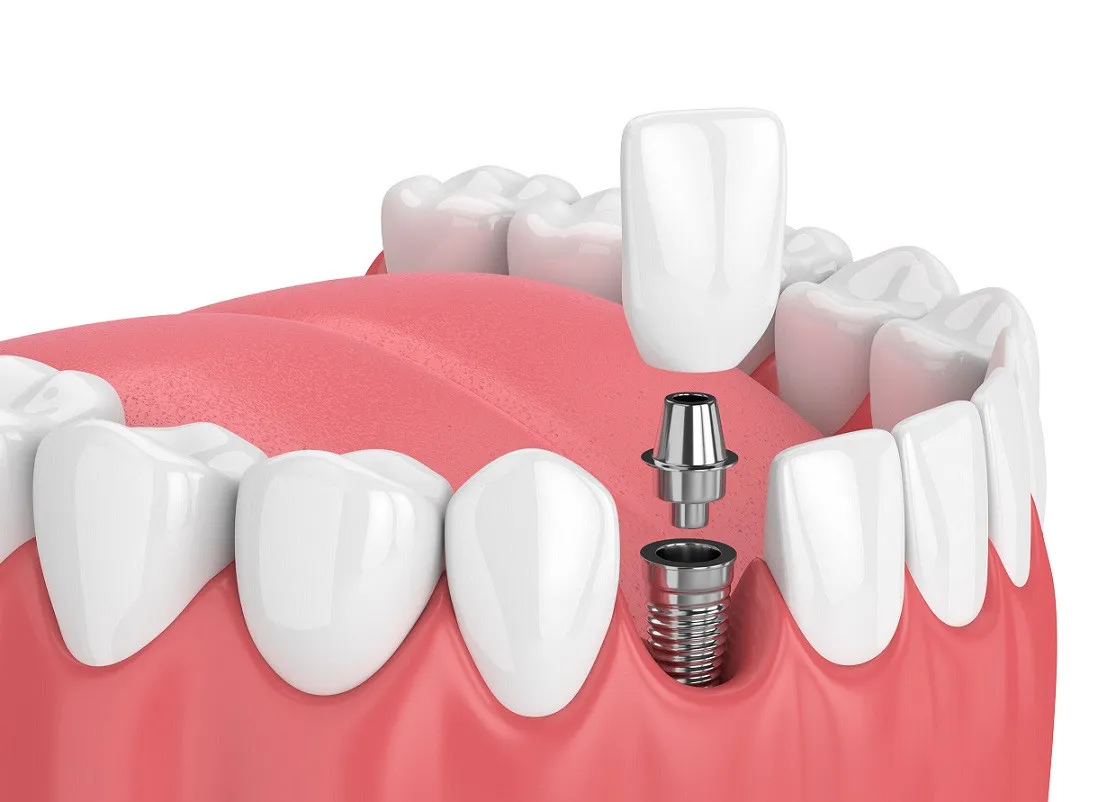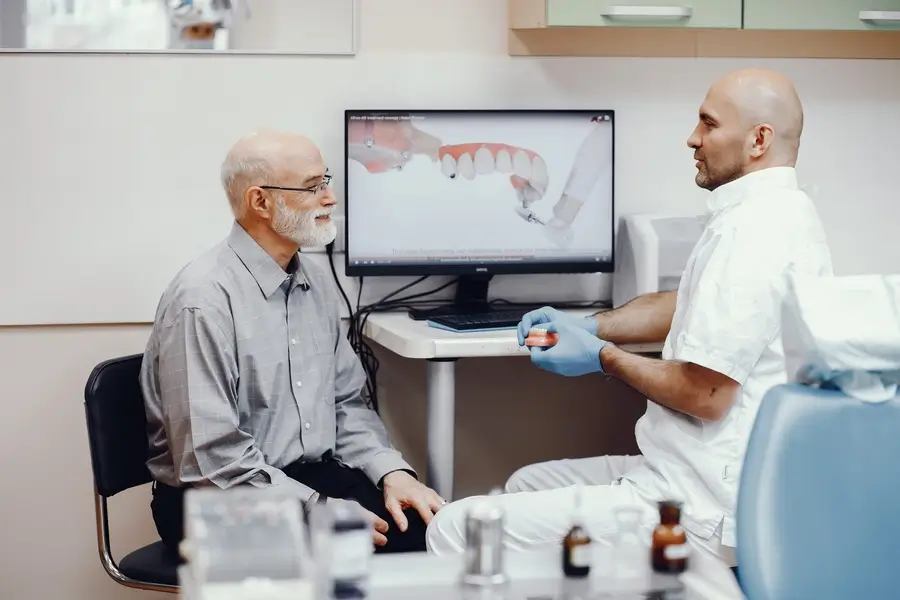Dental implants are widely regarded as the gold standard for replacing missing teeth. Unlike dentures or bridges, implants are surgically placed into the jawbone, providing a stable, natural-looking, and long-lasting solution. They not only restore your smile but also help maintain bone health and facial structure, making them a preferred choice for many patients.
While dental implants typically cost more upfront compared to other tooth replacement options, their durability, functionality, and aesthetic appeal often make them a worthwhile investment in the long run. The initial expense is balanced by years of reliable performance and minimal maintenance.
In this article, we’ll break down the cost of dental implants, explore the key factors that influence pricing, and help you decide whether implants are truly worth the investment for your oral health and lifestyle.
Understanding Dental Implants
Dental implants are advanced tooth replacement solutions designed to mimic the structure and function of natural teeth. They consist of small titanium posts that are surgically placed into the jawbone, where they act as artificial tooth roots. Over time, the implant fuses with the bone through a process called osseointegration, providing a strong and stable foundation for a replacement tooth.
A complete dental implant typically has three main parts:
Implant Post: The titanium screw that integrates with the jawbone and serves as the root of the new tooth.
Abutment: A small connector placed on top of the implant post, which securely holds the crown in place.
Crown: The visible part of the implant custom-made to match the color, shape, and size of your natural teeth for a seamless appearance.
Dental implants are highly preferred over traditional dentures and bridges because of their durability, natural appearance, and long-term oral health benefits. They prevent bone loss, maintain facial structure, and offer a permanent solution that feels and functions just like real teeth. For many, implants not only restore confidence in their smile but also improve overall quality of life.
Average Cost of Dental Implants
The cost of dental implants can vary depending on how many teeth need replacement, the materials used, and any additional procedures required. While implants may seem costly upfront, their durability and long-term benefits often make them a wise investment in oral health.
1. Single Tooth Implant Cost
A single dental implant typically costs between $3,000 and $5,000, which usually includes the implant post, abutment, and custom crown, as well as the surgical placement. The total may vary depending on your dentist’s experience, location, and the quality of materials used. High-quality zirconia or porcelain crowns tend to cost more than standard ones, but they offer a more natural look and longer lifespan.
2. Multiple Implants or Full Mouth Implants
When replacing several teeth, costs increase, but the per-tooth price often decreases. For example, a dental implant bridge (three to four teeth supported by two implants) may range from $8,000 to $15,000.
For those needing a complete set of replacement teeth, All-on-4 or full-mouth implants are common options. These typically range from $20,000 to $45,000 per arch, depending on the type of restoration (fixed or removable) and materials used. Though more expensive initially, they offer unmatched stability and aesthetics compared to dentures.
3. Additional Costs to Consider
In some cases, extra procedures may be needed before or during implant placement.
Bone Grafting: If your jawbone isn’t strong enough to support an implant, bone grafting may be necessary, costing $300 to $1,000 per site.
Sinus Lift: For upper jaw implants, this procedure can add $1,500 to $2,500.
CT Scans and X-rays: Essential for planning precise implant placement, typically $250 to $750.
Sedation or Anesthesia: Depending on comfort preferences, costs can range from $200 to $1,000.
These additional treatments improve the success rate of your implant but can significantly influence the final price.
Factors That Affect the Cost of Dental Implants

The cost of dental implants can vary significantly from one patient to another. Several factors influence the final price from the clinic’s location to the type of materials and procedures involved. Understanding these elements helps you make informed decisions and plan your budget effectively.
1. Location
Where you get your treatment done plays a major role in pricing. Dental clinics in large cities or high-cost regions typically charge more than those in smaller towns. This difference often reflects the clinic’s operating expenses, local market rates, and access to advanced technology.
2. Dentist’s Expertise
The experience and qualifications of your dentist can also affect the overall cost. Specialists in implant dentistry or oral surgery may charge higher fees, but their advanced skills help ensure precise placement, reduced complications, and long-lasting results making it a worthwhile investment in quality care.
3. Material Quality
The materials used for the implant post and crown have a direct impact on cost and durability. Titanium implants are the most common and affordable, known for their strength and biocompatibility. Zirconia implants, on the other hand, are metal-free, highly aesthetic, and hypoallergenic but generally more expensive. Similarly, the type of crown porcelain, zirconia, or ceramic influences the final price and appearance.
4. Type of Procedure
Not all dental implants are the same. Traditional single implants, mini implants, and All-on-4 full-arch restorations differ in complexity and cost. For example, mini implants are less invasive and more affordable, while full-arch implants require more planning, materials, and surgical precision leading to higher prices.
5. Aftercare and Maintenance
Long-term success depends on proper care after the procedure. Follow-up visits, adjustments, and occasional repairs can add to the total cost over time. Regular dental checkups and professional cleanings are essential to ensure your implants remain stable and healthy for years to come.
Are Dental Implants Worth the Cost?
While dental implants can be more expensive upfront, they are widely considered a long-term investment in both oral health and overall quality of life. Their durability, comfort, and natural appearance make them one of the most valuable tooth replacement options available today.
1. Long-Term Investment
Dental implants are designed to last decades often a lifetime with proper care. In contrast, dentures and bridges typically need replacement or adjustment every 5–10 years, which adds to long-term costs. Implants require minimal maintenance, reduce the risk of future dental problems, and provide lasting stability. Over time, they often prove to be the most cost-effective solution despite the higher initial expense.
2. Health and Lifestyle Benefits
Beyond aesthetics, implants play a vital role in maintaining oral health. They prevent bone loss, preserve facial structure, and keep adjacent teeth stable, which traditional dentures cannot do. Functionally, they restore natural chewing ability and clear speech letting you eat, talk, and smile with complete confidence. Unlike removable dentures, implants do not slip, click, or cause gum irritation, offering unmatched comfort and peace of mind.
3. Cost vs. Value Comparison
When comparing implants to other options, the long-term value becomes clear. While dentures and bridges may cost less initially, they often need frequent repairs, replacements, and adhesives all of which add up. Over a 10–20 year period, the cumulative expenses and inconvenience of temporary solutions often exceed the one-time cost of implants. In terms of durability, comfort, and overall satisfaction, dental implants consistently deliver superior value.
How to Make Dental Implants More Affordable
Dental implants are a valuable investment, but their cost can feel overwhelming for many patients. Fortunately, there are several ways to make the treatment more budget-friendly without compromising on quality. With the right planning and research, achieving a healthy, confident smile can be within reach.
1. Dental Insurance Coverage and Financing Options
While most standard dental insurance plans don’t cover the full cost of implants, some offer partial coverage for components like crowns or diagnostic procedures. It’s worth checking your policy or asking your provider about specific implant benefits. Additionally, many dental clinics provide financing options or work with third-party lenders that allow you to spread payments over several months or years. This approach helps manage the cost with affordable monthly installments instead of a large upfront payment.
2. Payment Plans, Dental Tourism, and Dental Schools
Many dental offices now offer in-house payment plans with low or zero interest, making treatment more accessible. For patients seeking significant savings, dental tourism traveling abroad to countries with lower treatment costs can be an option, though it requires careful research to ensure safety and quality. Another smart option is visiting dental schools, where supervised students perform implant procedures at reduced rates. While it may take longer, the savings can be substantial.
3. Choosing a Qualified but Affordable Provider

Affordability should never mean compromising on care. Always choose a qualified, experienced implant dentist who uses high-quality materials and advanced technology. Comparing multiple quotes, reading reviews, and asking for detailed cost breakdowns can help you find the best balance between cost and expertise. A well-placed implant by a skilled professional lasts longer and prevents future expenses from complications or replacements.
Conclusion
Dental implants may come with a higher upfront cost, but they offer unmatched comfort, functionality, and long-term value that make them well worth the investment. Unlike temporary solutions, implants provide a permanent foundation that looks, feels, and functions like natural teeth helping you eat, speak, and smile with complete confidence for years to come.
If you’re considering dental implants, it’s best to consult a qualified dental professional who can assess your oral health, discuss your options, and provide a personalized treatment plan and cost estimate. Every patient’s needs are unique, and a professional evaluation ensures you receive the right care for lasting results.
In the end, investing in dental implants isn’t just about restoring teeth it’s about restoring quality of life. A healthy, confident smile is truly priceless and well worth the commitment.
FAQs
1. Why are dental implants so expensive?
Because they involve surgery, high-quality materials, and custom-made crowns for each patient.
2. How long do dental implants last?
With proper care, implants can last 20 years or even a lifetime.
3. Does insurance cover dental implants?
Some plans cover parts of the procedure; check with your provider for details.
4. Are dental implants painful?
Mild discomfort is common, but modern anesthesia makes the procedure mostly pain-free.
5. Are implants better than dentures?
Yes they’re more stable, natural-looking, and prevent bone loss, though they cost more initially.
















